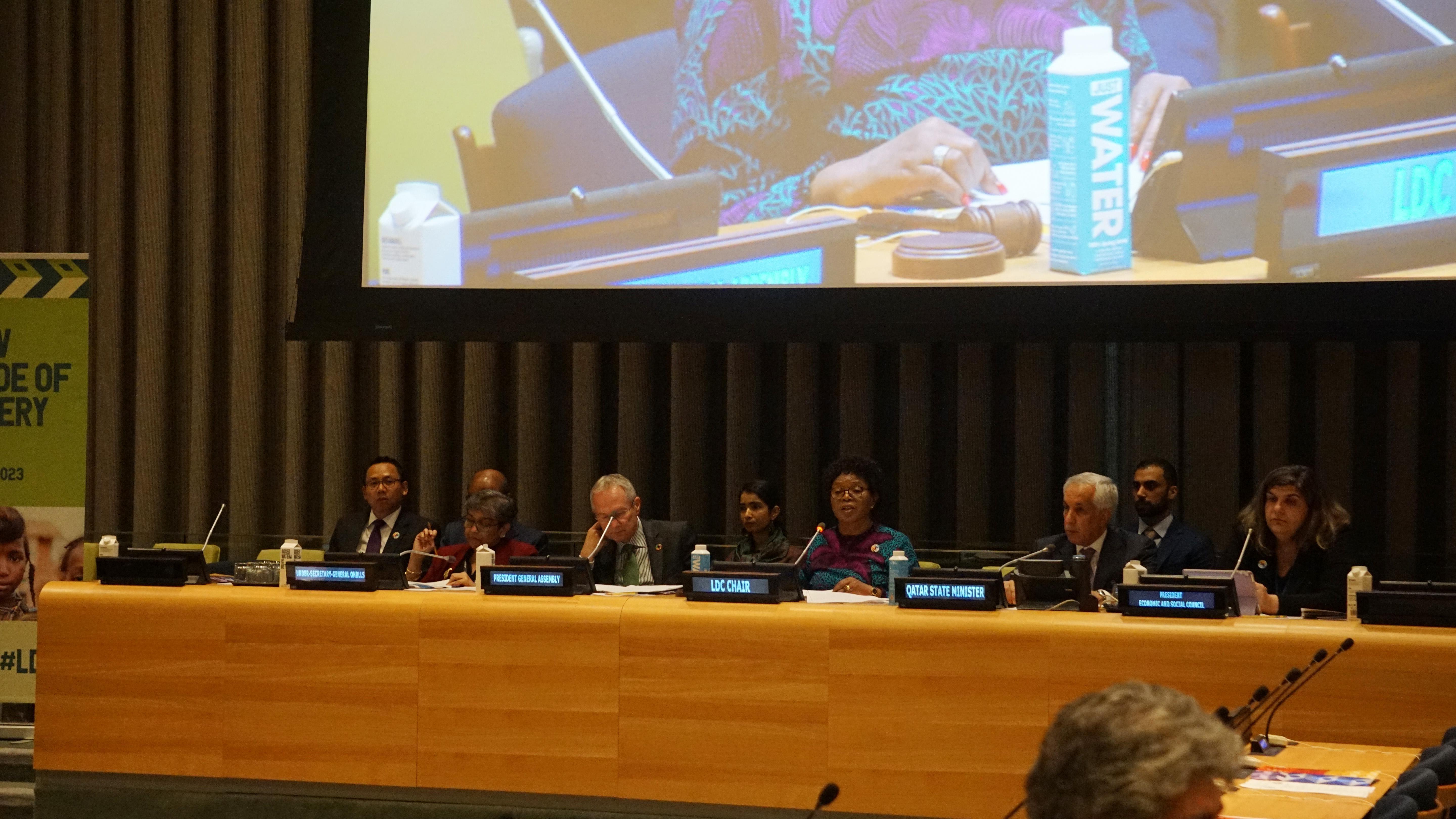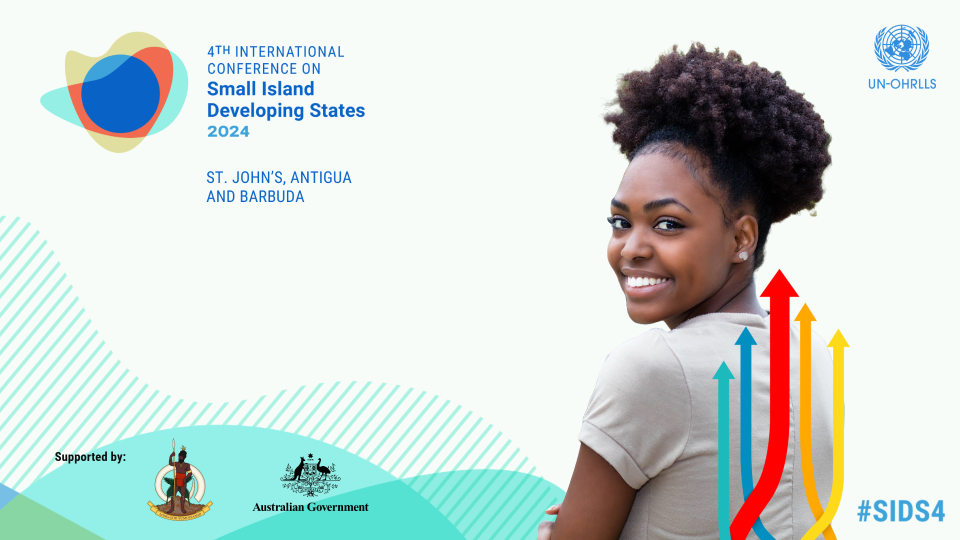Annual Ministerial Meeting of the Least Developed Countries
Accelerated implementation of the Doha Programme of Action to overcome the impacts of the ongoing crises and regain momentum in achieving the SDGs in LDCs
The 2022 Ministerial meeting of LDCs was held on 22 September in the sidelines of the 77th UNGA. At the meeting both the LDCs and their development partners affirmed that LDCs have been affected most by the cascading crises of COVID-19 and the war in Ukraine in addition to the effects of climate change. Their hard-won development gains have been reversed. Strong calls to urgently address the food, energy and financial crisis in LDCs were made to reverse the devastating effects on poverty and hunger.
H.E. Ms. Nancy Tembo, Minister of Foreign Affairs of the Republic of Malawi, as Chair of the LDC group flagged that challenges related to hunger, education, health, employment, limited fiscal space and social protection are holding back recovering efforts and need to be urgently addressed.
H.E. Mr. António Guterres, Secretary-General of the United Nations, stated that the Doha Programme of Action reminds us that global recovery depends on these countries getting the support they need.
Ms. Rabab Fatima, Under Secretary-General and High Representative for LDCs, LLDCs and SIDS reminded participants of the importance of the 5th United Nations Conference on the Least Developed Countries (LDC5). With the Programme of Action already adopted, the Doha Conference offers a unique opportunity to focus on implementation, including key deliverables such as an online university, an investment support center, food stockholding, a new resilience building mechanism, and graduation support facilities. She informed that preparations for LDC5 are in full swing, on all tracks: intergovernmental, private sector, civil society, parliamentarians and youth.
Speakers acknowledged that the Doha Programme of Action (DPoA) is an ambitious document and provides a strong basis to address these crises and build the resilience of LDCs through its 6 priority areas. It was recognized that a holistic approach is needed to address the intertwined challenges LDCs are facing and to harness new opportunities, including for their large youth population.
Addressing the climate crisis and enhanced support for adaptation and mitigation was one of the key themes of the meeting. This would include investment in renewable energy as well as progress towards the issue of Loss and Damage. The need to better prepare for future crises and disasters was also stressed by many speakers.
Furthermore, it was stressed that to reverse increasing hunger in LDCs, the root causes of the fragile food systems, especially those deriving from environmental degradation and climate change, including water stress, need to be addressed.
Education at all levels as well as skills development and access to technology was recognized as a precondition for progress towards all goals of the DPoA - especially through the creation of decent employment, which will reduce poverty and foster structural transformation. The creation of an online university for science, technology, engineering and math (STEM) would be one step in that direction.
As currently 16 LDCs are in the progress towards graduation out of the category, the need to prepare flexible and realistic smooth transition strategies, that will ensure that graduation is irreversible, was highlighted. Thus, the new Sustainable Graduation Support Facility was welcomed. Obstacles of those LDCs far from meeting the graduation criteria also need to be addressed.
Several LDCs informed that they have started mainstreaming the DPoA into their national development strategies and plans. The importance of ownership and leadership by LDCs for their development was recognized. Additional support, including by the UN system was also called for. Due to the enhanced vulnerability of the people of LDCs to the cascading crises the need to greatly scale up social protection was recognized.
The need to meet the ODA commitments towards LDCs was flagged, including calls for enhanced aid effectiveness and increased budget support. In addition, the need for innovative finance, enhanced private investment and debt relief was mentioned. Several development partners highlighted enhanced support to LDCs and their priorities.
It was concluded that strengthened partnerships with concrete initiatives need to be announced at the LDC5 Conference in Doha in March 2023, which will be hosted by the State of Qatar. Member States, the private sector, civil society, youth and academia need to work together to make opportunities for the people in LDCs a reality. Only if the international community works together in support of LDCs can the goal to leave no one behind be achieved.
At the closing of the Meeting a Ministerial Declaration of the LDCs was adopted by consensus.
Documents
Statements
- Remarks by H.E. Mr. António Guterres, Secretary General of the UN
- Remarks by Ms. Rabab Fatima, Under Secretary-General and High Representative, UN-OHRLLS
- Remarks by Ambassador Linda Thomas-Greenfield, U.S. Representative to the United Nations
- Statement by H.E Saleumxay KOMMASITH, Deputy Prime Minister, Minister of Foreign Affairs, Lao People’s Democratic Republic
- Statement by Ambassador Esen Altuğ, Director General for Multilateral Economic Affairs, Ministry of Foreign Affairs, Republic of Türkiye
- Statement by Mr. Flemming Møller Mortensen Minister for Development Corporation of Denmark












